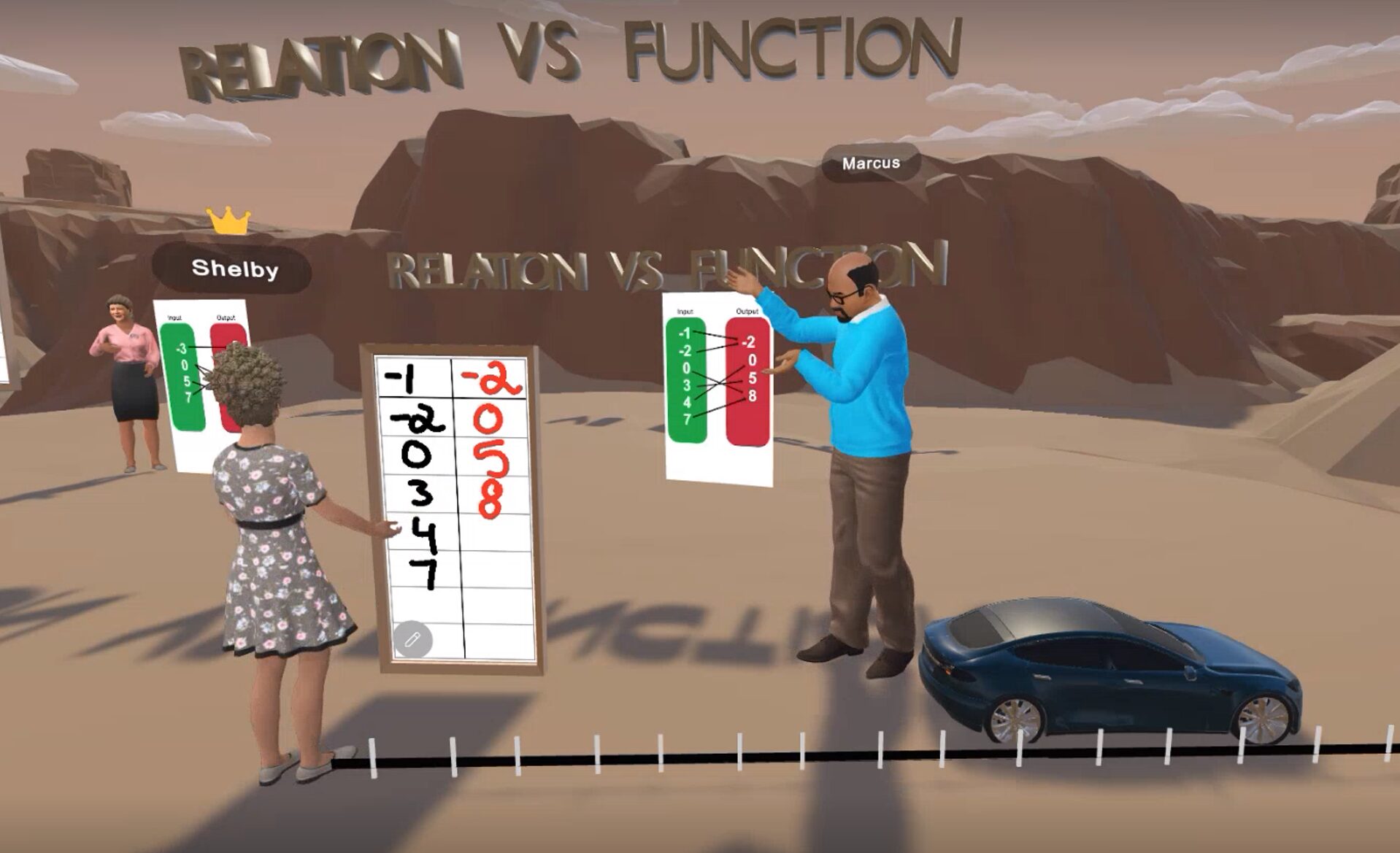A Guide: Preparing Students for the Digital Age
By: Beverly Matoney | The Homeschoool Copywriter
 In today’s rapidly evolving digital landscape, equipping your children with strong digital literacy skills has become increasingly crucial. A homeschooling parent has the unique opportunity to tailor their children’s education to best prepare them for the realities of the modern world.
In today’s rapidly evolving digital landscape, equipping your children with strong digital literacy skills has become increasingly crucial. A homeschooling parent has the unique opportunity to tailor their children’s education to best prepare them for the realities of the modern world.
Digital literacy, defined as the ability to effectively and safely navigate, evaluate, and create content using digital technologies, is an essential component of a well-rounded education. By ensuring your children develop these critical skills from an early age, you can set them up for success in the digital age.
“In the digital age, teaching children digital literacy is like teaching them to swim – an essential skill to navigate the vast ocean of information with confidence and resilience.” ~ Sue Atkins
But how can you teach digital literacy in your homeschool setting?
Preparing your homeschooled children to enter the digital age is a multifaceted endeavor that requires a comprehensive approach to digital literacy education.
This includes:
- starting with the fundamentals,
- developing research and evaluation skills,
- fostering digital communication and collaboration,
- emphasizing digital citizenship and ethics,
- introducing coding and computational thinking,
- encouraging creative digital expression,
- staying up to date with emerging technologies,
- and maintaining a balanced approach.
Start with the fundamentals
Begin by ensuring your children have a strong understanding of basic computer and Internet processes. They should know how to use a keyboard and mouse, navigate file systems, and operate common software and web browsers. Provide ample hands-on opportunities for them to practice these foundational technological skills.
Introduce the concept of the Internet and how it works, explaining the difference between the web, e-mail, and other online services. Discuss online safety and privacy by teaching them about protecting personal information, recognizing phishing attempts, and practicing good digital hygiene.
Develop research and evaluation skills
In the digital age, the ability to effectively search for, assess, and utilize online information is paramount. Teach your children how to conduct targeted online searches, evaluate the credibility of websites and sources, and discern fact from fiction.
Guide them through the process of researching a topic, evaluating the reliability of the information they find, and synthesizing what they’ve learned to create an original presentation. Encourage them to cross-reference multiple reputable sources and to think critically about the biases or agendas that may influence online content.
Foster digital communication and collaboration
 In an increasingly connected world, proficiency in digital communication and collaboration is a must-have skill. Introduce your children to various online communication tools, such as e-mail, video conferencing, and collaborative document editing.
In an increasingly connected world, proficiency in digital communication and collaboration is a must-have skill. Introduce your children to various online communication tools, such as e-mail, video conferencing, and collaborative document editing.
Teach them appropriate etiquette and best practices for these platforms, including how to communicate effectively and professionally. Encourage them to use these tools to work on group projects, share ideas, and engage with peers and experts around the world.
Emphasize digital citizenship and ethics
Digital citizenship is the responsible and ethical use of technology and is a crucial component of digital literacy. Instill in your children a strong understanding of their rights and responsibilities as digital citizens, including respecting intellectual property, avoiding cyber-bullying, and maintaining a positive online presence.
Discuss the implications of their digital footprint on the importance of developing a thoughtful, intentional approach to their online activities. Encourage them to consider the ethical and societal implications of emerging technologies, such as artificial intelligence and social media.
Introduce coding and computational thinking
The ability to break down complex problems and devise algorithmic solutions are becoming increasingly valuable skills in the digital age. Incorporate age-appropriate coding and programming activities into your homeschool curriculum using resources like coding games, block-based programming languages, and introductory computer science lessons.
These skills not only prepare your children for potential careers in technology but also expand critical thinking, problem solving, and creativity which are valuable assets in any field.
Encourage creative digital expression
Digital literacy extends beyond just consuming information. It also encompasses the ability to create and share content. Provide your children with opportunities to explore various digital media, such as photo and video editing, digital art, and audio production.
Persuade them to use these tools to express themselves, tell stories, and share their unique perspectives with the world. This not only nurtures their creativity but also helps them develop a deeper understanding of digital media production and distribution so they can create digital content, not just consume it.
Stay up to date with emerging technologies
 The digital landscape is constantly evolving, and it’s essential to keep your finger on the pulse of new and emerging technologies. Regularly research and explore the latest advancements in areas like artificial intelligence, virtual or augmented reality, blockchain, and the Internet of Things.
The digital landscape is constantly evolving, and it’s essential to keep your finger on the pulse of new and emerging technologies. Regularly research and explore the latest advancements in areas like artificial intelligence, virtual or augmented reality, blockchain, and the Internet of Things.
Incorporate these cutting-edge topics into your homeschool curriculum, encouraging your children to think critically about their implications and potential applications. You’ll prepare them for the future but also encourage a sense of curiosity and adaptability—key traits for navigating the rapidly changing digital world.
Foster a balanced approach
While digital literacy is essential, it’s crucial to maintain balance within your homeschool. Establish clear guidelines and boundaries around screen time, social media usage, and the integration of digital tools into your children’s daily lives.
To do this, encourage offline activities, face-to-face interactions, and opportunities for unstructured play and exploration. By striking a healthy balance you can ensure your children develop the digital skills they need while also nurturing their physical, social, and emotional well-being.
What are some ways you can assess your children’s digital literacy skills?
- Create a comprehensive list of the skills your children should have. Evaluate their proficiency in each area through observation, conversations, and targeted assessments.
- Assign your children hands-on digital projects that require them to demonstrate their abilities in specific areas.
- Have your children curate a digital portfolio showcasing their work. Periodically assess this portfolio to track their progress.
- Present your children with real-world digital scenarios and observe how they navigate and problem-solve these situations.
- Utilize online tools and quizzes designed to evaluate digital literacy skills for quantitative data to supplement your observations.
- Encourage your children to reflect on their own digital literacy journey, identifying their strengths, weaknesses, and goals for improvement.
- Provide opportunities for your children to collaborate on digital projects and provide constructive feedback to one another.
- Consistently observe your children’s digital behavior and habits to help you identify areas that may require more focused attention.
As a home educator, you have the unique opportunity to tailor your children’s homeschool journey to meet the demands of the modern era. Remember to also tailor your assessment approach to the individual needs and developmental stages of your children.
By prioritizing digital literacy, you not only empower your children to navigate the digital landscape with confidence but also prepare them to become responsible, ethical, and adaptable citizens in the 21st century and beyond.
About the Author: Beverly Matoney
Beverly Matoney is a wife, mother to two wonderful adult children, and writer living in northeast Georgia. She began her career in sales and marketing, but eventually opted for the stay-at-home life. When her oldest child was three, she and her husband decided homeschool was the best path for their family. That was way back in the early 90s when homeschool was just beginning to gain steam as an education alternative. But what an adventure it was!
Fast forward 20+ years, and their children have grown, graduated from homeschool, gone to college, and started their own lives. What’s a former home educator to do? She follows another dream she had of being a writer.



